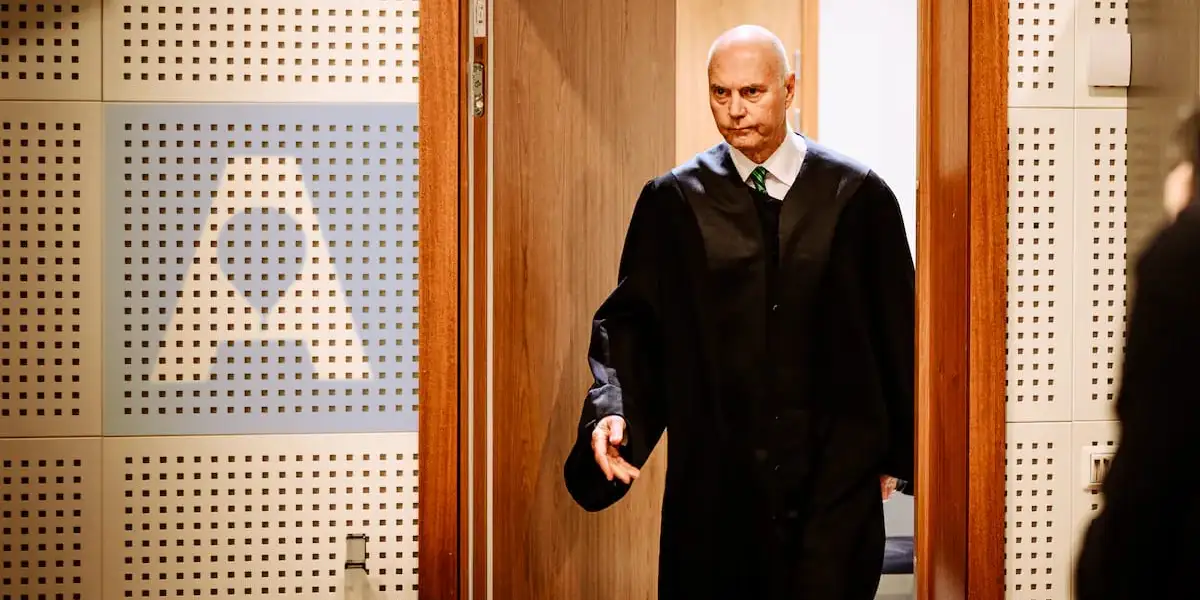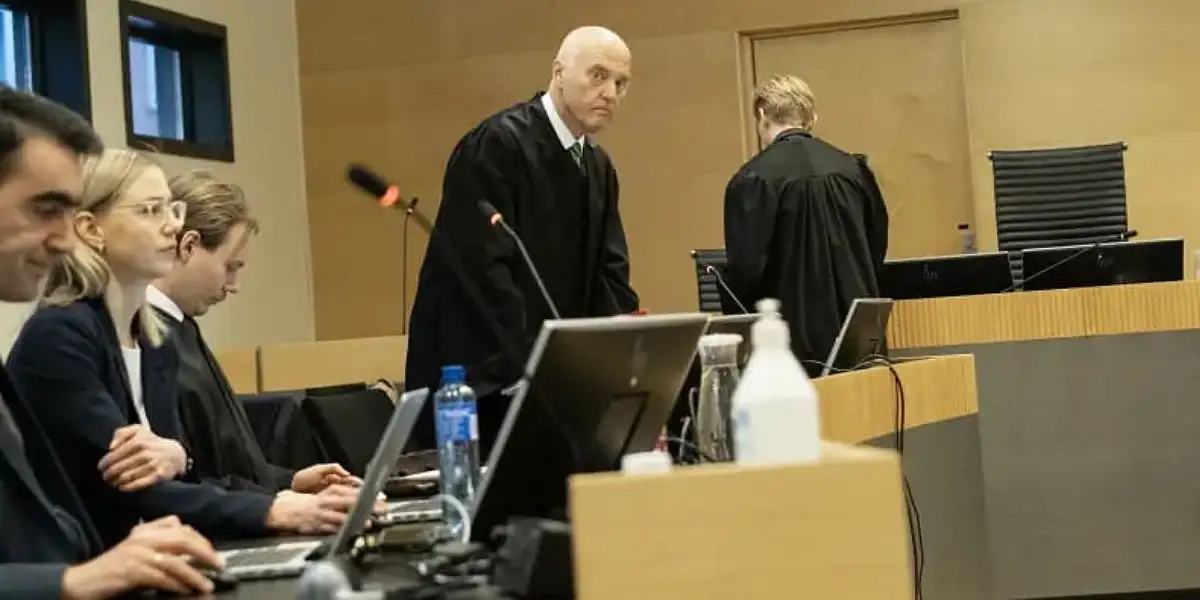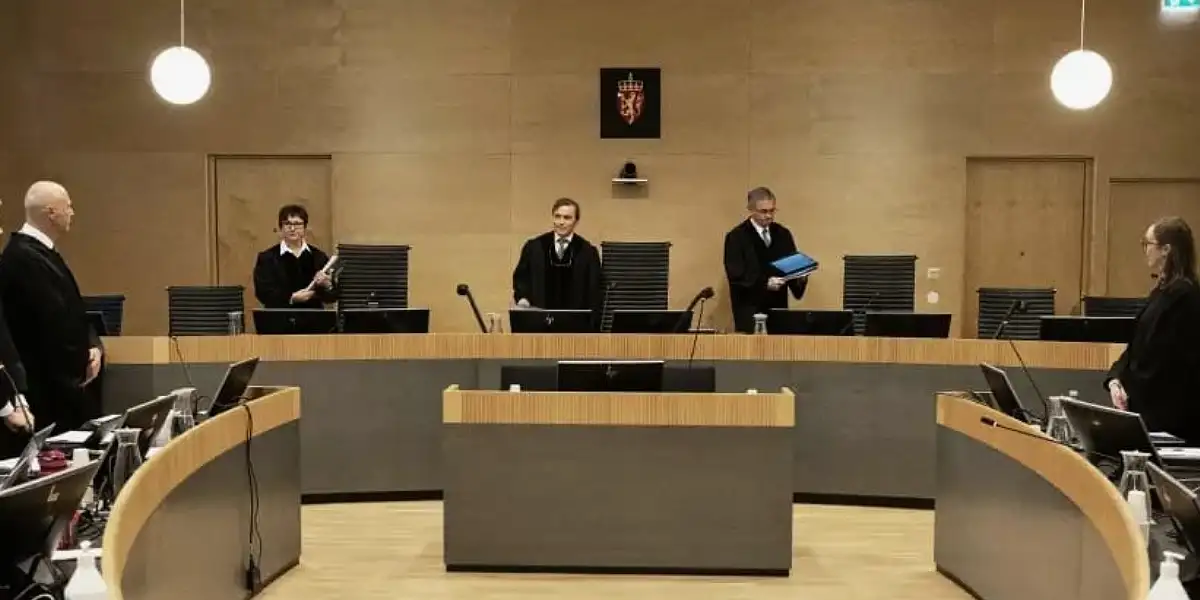More than 11 years revealing secrets because there is no excuse for secrecy in God’s true religion – The Watchtower, June 1st 1997; Dan 2:47; Matt 10:26; Mark 4:22; Luke 12:2; Acts 4:19, 20.

Published By: Miss Usato, Last Updated: February 3rd, 2025
Oslo, Norway—On Monday, 9:00 A.M., February 3rd, 2025, the trial between the Government of Norway and Jehovah’s Witnesses began at the Borgarting Court of Appeals Courtroom K-33. The area was filled with former and active Jehovah’s Witnesses and journalists. It was so packed that some had to be transferred to another courtroom to watch on video.
The first day of the trial was devoted to the Jehovah’s Witnesses’ opening statement. Anders Ryssdal, the Jehovah’s Witnesses’ lawyer, began by strongly criticizing the district court’s ruling, arguing that the state has not conducted a thorough investigation into any specific cases of child abuse within the community.
He emphasized that children aged 15 are legally recognized as mature enough to choose their religious affiliation, and those who undergo baptism are fully aware of the community’s expectations and exclusion practices.
Ryssdal argued that the court’s ruling essentially labels baptism itself as psychological violence, which he refuted by describing the ceremony as a “joyous and voluntary event” for believers.
He maintained that the religious teachings and exclusion practices are well-known to those who commit to the faith and that exclusion does not always result in severe social consequences.
Ryssdal framed the state’s actions as an unlawful interference with religious freedom, citing Article 9 of the European Convention on Human Rights (ECHR). He referenced a recent ruling by the European Court of Human Rights, which upheld the right of an Alevi religious community in Austria to be officially registered. The Austrian religious community was denied registration on the grounds that there is already another Alevi religious community in the country, but was upheld by Europe’s highest court in that it involved a violation of religious freedom. This precedent, he argued, contradicts the Norwegian state’s position and demonstrates that denying Jehovah’s Witnesses official recognition constitutes a human rights violation.
He also countered the state’s argument that Jehovah’s Witnesses can operate freely without registration and subsidies, asserting that denying official recognition has significant consequences—such as members losing the right to religious marriages, which has caused distress among those wishing to wed in their place of worship.
According to a source inside the courtroom, Ryssdal argued that the Elders would lose their clergy/penitent privilege without the registration. This is their legal protection for staying silent on matters where a crime committed by a Jehovah’s Witness has been divulged to elders as part of their confessional process.

Ryssdal warned against the state interpreting religious doctrine, arguing that it lacks theological expertise. He criticized the court for basing its conclusions on biblical texts rather than Jehovah’s Witnesses’ actual teachings and practices. He also questioned why the state had historically allowed the community’s registration but had now reversed its stance, implying that increasing secularism may be influencing the state’s stricter position.
The lawyer acknowledged that Jehovah’s Witnesses practice exclusion but refuted claims that it equates to psychological violence.
He explains that Norway has a population of over 5 million and points out that the religious community only has 12,000 members in Norway, and that there is therefore no question of extensive social distancing.
He emphasized that exclusion is intended to encourage repentance and reintegration into the community. Furthermore, he noted that the state has not presented any concrete examples of children in Norway suffering from exclusion, undermining its argument that children’s rights are being violated.
Ryssdal concluded that while exclusion may be challenging for some, it is an inherent part of religious freedom. Jehovah’s Witnesses plan to call witnesses throughout the trial to testify that exclusion has sometimes benefited individuals in their personal and spiritual lives.
The state is set to present its opening statement on Tuesday, where it will argue that exclusion practices violate fundamental rights. The case is expected to last nine days, with testimonies and further legal arguments.

Ryssdal’s argument that 15-year-olds are mature enough to make a lifelong religious commitment—including the risk of being disfellowshipped—is deeply flawed (In the nicest way of putting it). He insists that exclusion is merely a “loving arrangement” and that those who leave must accept the “social cost” as part of religious freedom. But what about the youngest children being baptized—those as young as 7 or 8, which is not uncommon in Jehovah’s Witnesses?
A 7-year-old barely understands long-term consequences, let alone the complex doctrine of disfellowshipping and shunning. How can a child at such a tender age possibly grasp that they are committing to a system where, if they later change their mind, they may lose their entire social and familial support system?
Ryssdal frames this as a matter of religious liberty, but in reality, he is advocating for a system that allows children—who are not even old enough to vote, drive, or fully comprehend the implications of their choices—to be subjected to “demanding” and psychologically distressing consequences. If religious freedom comes at the cost of children being cut off from their families for decisions they made before they even reached adolescence, then we must seriously question whether that “freedom” is truly justifiable.
His argument comparing the number of Jehovah’s Witnesses in Norway to the State’s population is grossly fallacious. It doesn’t matter if there is 12 Jehovah’s Witnesses or 12000. Even in a minority religious group, most members are strangers to each other. We as individuals only care about our nearest and dearest; our friends and family.
No one feels deprived when they can’t talk to strangers, even in their own group. People are socially and psychologically deprived only when they are cut off from family and friends. And there are very few people that have hundreds of friends, let alone 12,000. And nobody is friends with everyone in Norway!
With this sort of logically unstable argumentation, one wonders if Ryssdal and the Jehovah’s Witnesses he represents are only interested in winning a court case, at the expense of honesty and integrity.
Vartland Headlines “Noomi was living at home when she was disfellowshipped- was treated like a stranger”
Vartland February 3, 2025: “The case is ultimately about money”
DAGEN February 3, 2025 “The trial in Borgarting Court of Appeal begins today”
European Convention on Human Rights
Office of the Attorney General, representing the State of Norway
Glittertind AS Law Firm representing Jehovah’s Witnesses
Reporter
Translator
Analysis